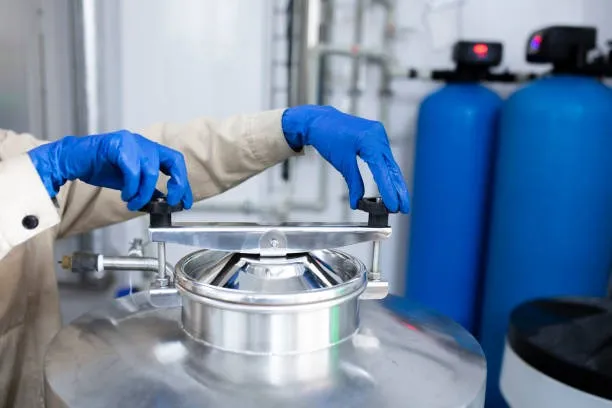
Boiler Maintenance in Delta, PA
Keeping your boiler running safely and efficiently is essential for Delta, PA homes where cold winters and older hydronic systems are common. Regular boiler maintenance prevents unexpected breakdowns, lowers energy costs, and extends equipment life.
Why boiler maintenance matters in Delta, PA
Delta experiences long heating seasons and temperature swings that place extra stress on boilers, especially older cast-iron and hydronic systems found in many local homes. Mineral buildup from hard water, air trapped in radiator loops, and freeze-related plumbing stress are frequent local problems. Proper maintenance reduces the risk of costly mid-winter failures, improves heating comfort, and helps ensure safe combustion and venting in homes close to property lines and wooded lots where vents can collect debris.
Common boiler maintenance issues in Delta, PA
- Mineral scale and sludge buildup inside heat exchangers and radiators, reducing heat transfer and efficiency
- Air in the system causing cold spots on radiators and uneven heating
- Leaks at valves, unions, or aging piping leading to pressure loss and water damage
- Worn circulating pumps and bearings that increase energy use and noise
- Poor combustion or sooty burners from inefficient fuel burn or clogged nozzles (oil or gas)
- Blocked or deteriorated flue and venting that can create backdraft or carbon monoxide risk
- Faulty controls, thermostats, or safety devices that cause short cycling or unsafe operation
What a professional boiler maintenance visit includes
A full maintenance visit addresses safety, efficiency, and reliability with a systematic inspection and tune-up. Typical steps include:
- Visual inspection of the boiler, piping, radiators, and boiler room for leaks, corrosion, and clearance issues
- Combustion testing and efficiency analysis to measure heat output, oxygen and carbon monoxide levels, and to adjust the burner for proper fuel-air mix
- Cleaning of burners, heat exchangers, and accessible panels to remove soot, scale, and debris that reduce efficiency
- Pressure and safety checks: verifying operating pressure, checking pressure relief valves, expansion tank condition, and water feed mechanisms
- Lubrication and adjustments: lubricating pump bearings and motor components, tightening electrical connections, and adjusting controls and pilot assemblies
- Filter and vent inspections: replacing or cleaning any inline filters, inspecting chimney or direct vent systems for blockages or deterioration, and verifying proper draft
- System balancing and air removal: bleeding radiators, checking zone valves and circulators, and confirming even heat distribution across the home
- Diagnostic testing of controls and thermostats to ensure accurate temperature control and to prevent short cycling
- Documentation of findings and recommendations for repairs, water treatment, or component replacement
Combustion and efficiency testing explained
Combustion testing measures how cleanly your boiler is burning fuel. Technicians use portable analyzers to record oxygen, carbon dioxide, and carbon monoxide levels plus flue gas temperature. These numbers indicate if the burner needs adjustment, if the heat exchanger is fouled, or if venting is compromised. Improving combustion by proper tuning can reduce fuel use and lower heating bills while maintaining safety.
Maintenance plan benefits for Delta homeowners
Enrolling in an annual maintenance plan delivers clear, long-term advantages for homes in Delta, PA:
- Reduced chance of mid-winter breakdowns through preventive tune-ups and early fault detection
- Extended equipment life by keeping components clean and properly adjusted
- Improved energy efficiency and lower heating costs from optimized combustion and circulation
- Priority scheduling during cold snaps when service demand is highest
- Predictable upkeep with scheduled inspections and documented service history
- Safer operation thanks to routine safety checks and CO monitoring
Recommended service intervals
- Annual comprehensive inspection and combustion tune-up is recommended for most residential boilers, ideally before the cold season begins (late summer to early fall)
- Mid-season checkup for older systems or high-use households can catch developing issues early
- Replace filters or clean inline strainers as needed, typically every 6 to 12 months depending on system design and water quality
- Monitor expansion tanks and system pressure quarterly and after major temperature swings or maintenance events
Typical repairs found during maintenance and what they involve
- Replacing worn pump seals or circulators to restore flow and quiet operation
- Repairing or replacing pressure relief valves, feed valves, or expansion tanks to maintain proper system hydraulics
- Cleaning or replacing burner assemblies and nozzles in oil-fired boilers or adjusting gas valves and igniters for gas models
- Flue and vent remediation to restore proper draft and eliminate backdraft risk
- Valve replacement and radiator bleed valve service to fix leaks and improve heat balance
Homeowner checklist for between-service care
- Visually inspect the boiler area monthly for leaks, unusual odors, or pooling water
- Keep the boiler room clear of clutter and combustible materials for safety and airflow
- Check thermostat settings and replace batteries annually in programmable thermostats
- Bleed radiators if you notice cold spots or gurgling sounds in pipes
- Install and test CO detectors near sleeping areas and on the same floor as the boiler
Signs you need immediate attention
- Persistent drop in system pressure or frequent need to add water
- Unusual banging, clanking, or loud cycling sounds from the boiler or piping
- Visible water leaks, rusty fittings, or wet insulation around radiators and valves
- Soot buildup, strong fuel odors, or CO alarm activation
- Rapid increases in fuel use without a change in thermostat behavior
Routine, professional boiler maintenance is the most effective way to protect comfort, safety, and the value of your home in Delta, PA. A thorough annual inspection and targeted service prevent the small issues that lead to big repairs, optimize system performance for Pennsylvania winters, and keep your boiler operating safely and efficiently for years.


Enjoy flexible financing options that make upgrading or repairing your HVAC system easy and budget-friendly.










